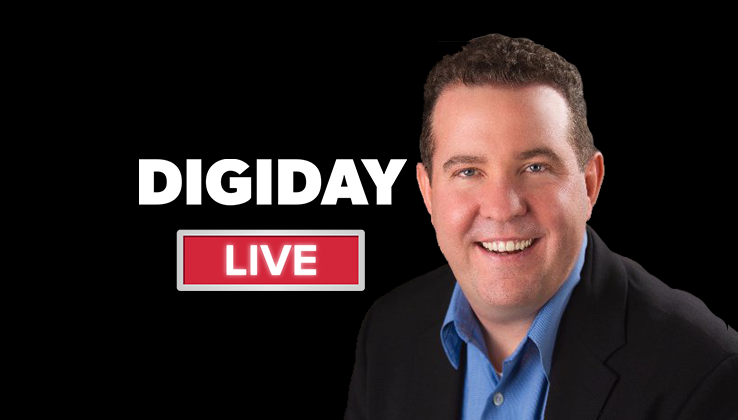Secure your place at the Digiday Publishing Summit in Vail, March 23-25

Subscribe: iTunes | Stitcher | RSS | Anchor
Nobody knows what artificial intelligence really means, at least when it comes to marketing. And, according to Michael Lawder, svp of customer care at Samsung Electronics in North America, that’s because AI isn’t advanced enough yet regardless.
“Machine and AI learning is here, but there is a gap of disappointment,” said Lawder at the Digiday AI Marketing Summit this month in Santa Barbara, California. “We’re focused on using technology where it can do well right now. It can gather information effectively. It can give product features, order status, but when you’re dealing with a broken phone, for example, I might need to ask you 10 questions to know what that really means. That human interaction is a gray area.”
Lawder discussed AI’s potential, integrating AI into customer service, data privacy and more in the session. Edited highlights are below:
Repurposing workforces
“In five to 10 years, a large part of our workforce will be replaced with automation. We have to think through how to repurpose the personal, specialized tasks. In the service businesses, these are large workforces that do repetitive tasks, like setting up service appointments, scheduling service or helping a customer with a problem. Those things will be absolutely automated in the future. We will not talk to human beings in most of our transactions. Interestingly, in service, customers are most happy when they don’t have to talk to someone. We have to focus on creating the best experience.”
Using brand ambassadors for customer service
“We have brand ambassadors who love and own our products. They get chat requests from customers [for help], and if they successfully resolve the problem, then we pay them. We pay them a little less than our representatives. They’re performing really well. One technology we’re focused on is how we can leverage our brand ambassadors and customers to help each other.”
Routing customers through bots
“Samsung Plus is a service application. It has a video chat and synchronous messaging. When you first chat, it will be a bot talking to you. It’s about how confident we are in AI today. I made the decision to not implement a bot to solve all your problems because the technology is frankly not there. We focus the first layer of this experience on information gathering. Then, we use algorithms to decide how to handle it. So we have a routing logic on how to handle a customer through the bot. The [order] is bot, brand ambassador and then a live agent.”
Creating a cohesive bot strategy is difficult
“We have too many chatbots and AI projects. Really, the power of a bot is that there is one. A human can’t do that — that’s why we design it. For us, it’s about unifying all these desperate strategies coming from marketing, operations and others. If you go to our experience, it’s a different bot; if you go to samsung.com, it’s a different bot. Creating a cohesive experience across all these [platforms] — Facebook Messenger, SMS, [website] or a native application — the bot will be the same. If you ask the bot what product you should buy, you should also be able to ask the same bot how to get help if you drop [your phone] and break it.”
Connectivity overshadows consumers’ privacy concerns
“Data is a complicated problem. It also needs to be protected. As you have more connected devices and more data being shared between those devices, it becomes more important to think through that whole thing. Most consumers don’t understand [privacy]. They’re buying into the connectivity, like being able to take their music from their home to their car and their office. But nobody really understands the potential risks connected with it. It’s up to us to figure out how to build products and experiences that are secure, and it can’t be a hidden feature in the settings menu.”
More in Marketing

As it ramps up push to fund AI bets, Meta makes a new play for agencies
Even in the age of Advantage+, Meta needs agencies.

Zero-click reality is rewriting the rules of search for brands
Search performance concerns have reached brand boardrooms. Both organic and paid search practitioners are scrambling to find effective responses to the questions posed by AI developments.

Walmart Connect’s full-funnel ambitions come into focus, with Amazon in its sights
Walmart Connect is scaling quickly, with AI investments and the Vizio acquisition shaping its push to rival Amazon’s ad business.





